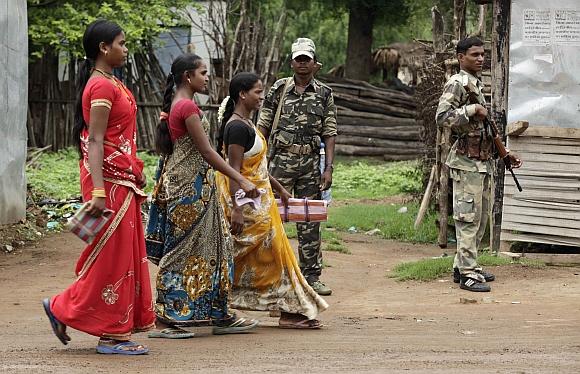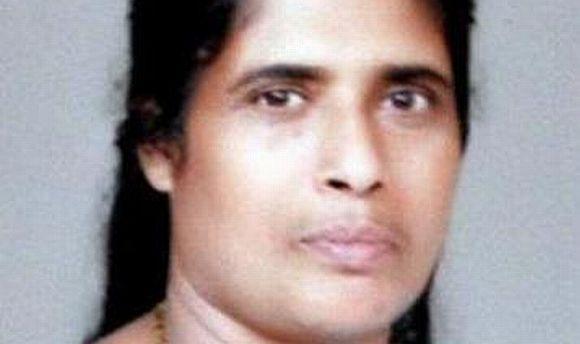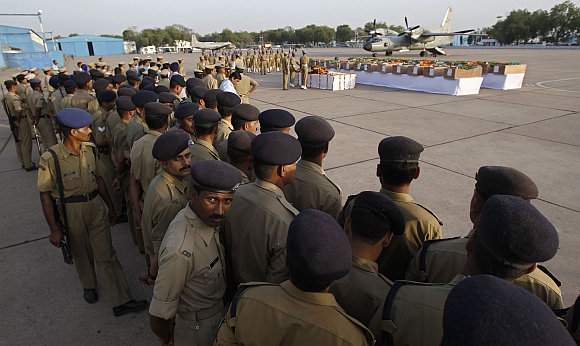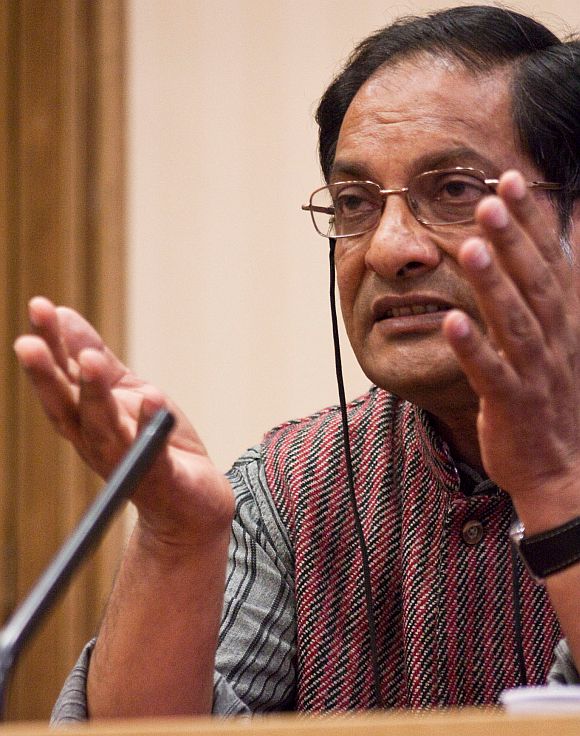
A 60-page report by the Human Rights Watch titled 'Between Two Sets of Guns: Attacks on Civil Society Activists in India's Maoist Conflict', documents human rights abuses against activists in India's Orissa, Jharkhand, and Chhattisgarh states.
This is the final part of the three-part series:
Part I: Why activists live in fear of govt and Maoists
Part II: What the govt and Maoists should do to save lives
Maoist Abuses
While human rights defenders have not often come under direct attack from Maoists, many say they are operating in an environment of fear and are unable to criticise Maoist abuses. Activists fear the Maoists because they have a long history of brutality towards those they perceive to be informers or class enemies.
The Maoists do not tolerate critics. Activists that criticise them for killings, extortion, or other abuses suffer threats and warnings. According to one local activist:
The Maoists kill people, saying that they are police informers. They killed one man who was doing good work on health and education. They said they were killing him because he had a cell phone, and was therefore a police informer. Everyone has a cell phone these days. Will they kill everyone?
Maoists keep a close watch on the activities of activists. Many activists spoke of Maoist questioning and threats, some saying they had to obey orders from local commanders who decreed what government services could be provided.
One activist told Human Rights Watch:
We work in a very poor area. The people there are really suffering. I knew that the Maoists were there, but I did my work and avoided them. One day, I was stopped. They were quite nice and polite. They asked about my work, but then they mentioned my family, and where we lived. They talked about their concerns about the police. I knew that I had been warned and that they were watching.
So great is the fear of Maoists that most activists did not wish to be identified when they described threats and abuses. Said one tribal activist from Chhattisgarh:
The Naxals have brought attention to our issues, but we cannot always support their methods. They have become a headache for us. They kill villagers randomly. And also they have brought the police into our villages because of their actions. The Naxals are not there when the police come, so they abuse us instead.
The fact that Maoist operations have led to increased police scrutiny and suspicion was described by other activists as well. One of them described the problem:
Government programs are only on paper, so many people have to migrate for livelihood. But now in our area, there is the police on one side and the Naxals on the other. When villagers travel for work, the Naxals say "You are a police informer." The police say "You went for Naxal training."
Many of the activists interviewed for this report are engaged in providing government-approved services to villagers in remote areas, such as health care or food assistance.
An activist from Orissa told Human Rights Watch:
Those of us that are working on National Rural Employment Guarantee are always in trouble. On one side there are corrupt contractors. On the other we have Naxals. They support some contractors who give them money.
Other times they don't want us to create awareness about people's rights. We have to find the protection where we can. Sometimes the police, sometimes the Naxals.
...

A tribal activist from Jharkhand complained that while both the Maoists and the government claimed to be protecting tribal communities, he believed they were really engaged in a battle to benefit themselves:
In Jharkhand in particular, there have been repeated allegations that some Maoists, or groups claiming to be Maoists, are engaged in corruption. When criticised for the killing of Niyamat Ansari (described below), the Maoists put up posters condemning respected activists such as Jean Dreze and Aruna Roy, and two Jharkhand-based activists, Nand Lal Singh and Gokul Vasant. Another poster called for a people's court to punish them.
Activists also complain that some civil society groups act to promote Maoist causes and then oppose those that speak out against Maoist abuses. Gladson Dungdung, an activist in Ranchi, whose harassment by state authorities is described below, wrote in April 2012 that:
There are three major violators of the human rights, i.e., the state, the non-state actors (Maoists, other Naxal and criminal groups) and the society as a whole. However, the state is constitutionally responsible for the protection of human rights and in fact the small forces emerge only whenever and wherever the state fails in delivering justice.
But, these days, it has become a fashion for the so-called Human Rights Activists to cry foul on human rights violations committed by the security forces but they keep mum when the non-state actors do the same thing.
Hence, it is obvious that they are also batting on behalf of the Naxals similar to the state, who bats for the corporate houses? These kinds of actions of the so-called Human Rights Activists will only add more problems in the civil rights movement and put questions in the credibility of the Activists' voices and the person like me will also struggle for identity?
Killing of Sister Valsa John, Jharkhand
Valsa John, a nun with the Sisters of Charity, had been involved for many years working on behalf of tribal people in Jharkhand, particularly those displaced by mining operations. On November 15, 2011, in Parkur district, a group of about 50 people that reportedly included about 30 Maoists broke into her home and murdered her.
Police asserted that the immediate motive for the attack was preventing Sister John from helping a rape survivor file a complaint with the police, which villagers wanted settled out of court, but that her broader activities were at issue.
According to Dumka inspector-general Arun Oraon, "The Maoists are trying to make inroads into Pakur to extort money from a mining company. The rebels, however, did not use firearms to kill her. They let the villagers do that so that they could convey a message that even an influential person like Valsa could be killed if Maoists did not approve of that person."
The Maoists admitted to their role in Sister John's killing. In an interview with the BBC, Naxal spokesman Somnath said, without providing any basis that Sister John was 'working for the interests' of mining companies. Because she had 'let down the tribals', he said, the Maoists had to 'resort to the extreme step'.
Police arrested about a dozen villagers soon after the killing, including at least one with alleged Maoist ties.
...

The Indian state has used sedition laws to curtail the right to free speech, stopped peaceful protests by issuing prohibitory orders, and concocted criminal cases to lock up critics of its policies and practices in areas with a large Maoist presence.
Government-supported vigilantes have attacked activists, claiming that those who criticise government rights violations are Maoist supporters.
Arbitrary Arrests and Torture
Human rights workers and activists, particularly those that speak out against abuses by government forces, fear being labeled 'Maoist' supporters and being taken into custody or worse.
Local activists concede that they do come into contact with the Maoists: working in remote parts of in Chhattisgarh, Orissa, Jharkhand, and Andhra Pradesh makes that inevitable. State security forces, frustrated by their inability to track Maoist fighters who slip into the forests in the adjoining states, often direct their attacks against 'soft' targets -- villagers from areas that support the Maoists and activists who criticise police abuses and state policies.
Local activists find it necessary to accommodate some Maoist demands in order to carry out their humanitarian work. This might include reaching an agreement on the areas where they can work or the services they deliver, or simply to be able to continue their activities. Government officials are often aware of this.
One police official in Orissa told Human Rights Watch that, "It is the duty of these activists to tell us about Maoist movements. If they hide these facts about a banned group, they are naturally suspects as well."
The officer recognised, however, that informing on the Maoists could put people at risk, particularly in areas where police can barely protect their own staff from ambushes and targetted killings by Maoists.
During meetings of grassroots human rights activists in Ranchi and in Delhi, many activists told Human Rights Watch that they had criminal charges pending against them. Most asserted that the authorities had filed these charges as a means of harassment and intimidation, and that the charges were based on an assumption that critics of the state are secret Maoist supporters.
A number of activists acknowledged that the situation is complicated because there is evidence that some activists do act as fronts or are ideological supporters of the Maoists, but note that authorities too often act on the assumption that activists are criminally supporting the Maoists, even in the complete absence of evidence of support.
That the charges brought against activists are often not based on strong evidence is borne out by the fact that, when finally brought to trial, activists in many cases have been acquitted.
Said one activist, "We are constantly worried about being taken into prison. The government can accuse us of anything, and then we are left to try and prove our innocence. It can take years."
Lawyers confirmed to Human Rights Watch that some activists have spent several years in jail before being acquitted. Lower courts have been reluctant to grant bail in cases of alleged Maoists. The accused often have to go through the appeals process all the way to the Supreme Court before they are granted bail.
...

Dr Binayak Sen, a medical doctor and activist with the People's Union for Civil Liberties, a long-time critic of government policy towards the Maoists, was detained on May 14, 2007, under the Chhattisgarh Special Public Security Act. Sen had earlier criticised this 2006 law because it permitted detention for 'unlawful activities', a term so loosely defined that it can be used to curtail peaceful activities of individuals and civil society organisations in violation of the Indian constitution and international human rights law.
The authorities initially detained Sen on the grounds that he was acting as a courier between jailed Maoist leader Narayan Sanyal and businessman Piyush Guha, who was allegedly a Maoist supporter. Sen had been visiting the 70-year-old Sanyal as his doctor under the supervision of prison authorities, who were authorised to search him.
During Dr Sen's trial the jail authorities said that they had never found Dr Sen acting as a courier. Altogether he met Sanyal 33 times in Raipur Central Jail, all with prior police permission.
Sen was eventually charged with, among other crimes, treason, criminal conspiracy, sedition, anti-national activities, and waging war against the state.
Evidence presented by the police included letters that were allegedly delivered by Sen, and documents and Maoist propaganda materials that were apparently recovered from his house. The police believed that Sen met with the Maoists when he travelled to remote areas to provide medical aid to the tribal population in Chhattisgarh state's Bastar area and relayed messages to Sanyal.
Evidence presented by the police included material gathered from his computer, mostly documents already in the public domain, letters that were recovered from Guha that Sen had allegedly delivered, a post-card from June 2006 written to Sen by Sanyal from Raipur jail regarding his health as well as his legal case, duly signed by the prison authorities, newspaper clips, and some documents that were described as Maoist propaganda materials.
On December 24, 2010, a Raipur district court convicted Sen on sedition charges and sentenced him to life imprisonment. The judge found no evidence that Sen was a member of any outlawed Maoist group or that he was involved in violence against the state. Immediately after the verdict, Sen's bail was revoked and he was arrested.
Harassment of civil society activists
Activists report being threatened by both Maoists and government security forces. Many admit to self-censorship in their work to escape retribution. For instance, a young tribal man told Human Rights Watch that he works with villagers to inform them of their rights, and as a result has repeatedly been threatened by both the police and the Maoists:
I am a local, so I can go everywhere. People know me. I can highlight issues, tell people that they must protest if there is an arrest or killing. I have been exposing police atrocities, so they are angry.... The police say, "You travel all over the place. Why don't the Maoists kill you?" But the thing is the Maoists are angry with me, too.
The local leaders. They say I am inciting people against Maoists. All I am doing is telling people that they should protest to protect their lives. They are stuck between two sets of guns, and they should say that they are suffering. I was told by the police, "We are watching. You talk too much, and you will be in jail, defending murder charges."
Another policeman told me, "We have our suspicions but we don't have proof. Once we catch you, you will be killed in a fake encounter."
Another activist said that his home was searched in what he believes was an effort to frighten him. His family is always nervous for his safety. He said:
"The security forces don't like my work. So they came and broke my house in the village, saying that it was a security risk. I complained to the district authorities, but there was no response. I live in fear. I don't travel alone because I will be killed, and each side will blame the other. No one will speak for me."
The police have sought to discredit critics by publicly asserting that they are Maoists or Maoist-supporters. Nandini Sundar, one of the petitioners in the Supreme Court case challenging the government's use of Salwa Judum vigilantes, said that she was falsely named by the police in a press release in connection with an attack on a politician in July 2010. The allegation was later withdrawn.
Another petitioner, Manish Kunjam, a former legislator complained that he did not get adequate police protection despite receiving repeated threatening phone calls and warnings. He alleged that his 'consistent stand against all kinds of violence, whether by Naxalites or Salwa Judum, as well as his stand against forcible and fraudulent land acquisition and mining by corporate, ha[d] earned him many powerful enemies'."
...